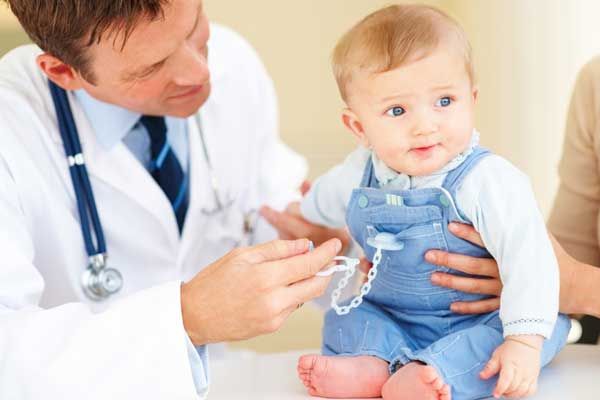Parents' Anxiety May Spur Unneeded Scans in Kids

Parents who are more anxious about their children's injuries may unknowingly contribute to their kids receiving unnecessary imaging tests, including radiation, a new study from Japan suggests.
Kids in the study with "minor blunt head trauma," who had bumped their heads seriously enough to warrant an emergency room visit, were more likely to wind up undergoing a CT scan if their parents preferred that the doctor order the scan, compared with kids whose parents deferred to the doctor's judgment, according to the researchers. CT scans involve radiation.
"Our results indicate that medically irrelevant factors such as parental preference may affect physician decision making and can result in unnecessary exposures to children," the researchers at St. Luke's International Hospital in Tokyo wrote in their findings.
Doctors typically order CT scans only in cases where they suspect a child may have a brain injury, said Dr. Robert Glatter, an emergency physician at Lenox Hill Hospital in N.Y., who was not involved in the study.
"This is a reality," Glatter said of the new findings. "It’s often that the parents' anxiety is what drives the physician to request the scan."
In a very small percentage of cases, a child with a minor head injury may develop a cerebral contusion, or bleeding in the brain. But even in those cases, a bleed is often small enough that a doctor would continue to monitor it rather than operate immediately. A doctor might order a series of scans to look for a change in the bleed, Glatter said.
An earlier study by U.S. researchers showed a similar trend as the new findings. "Parental anxiety and request was commonly cited by physicians as an important influence for ordering cranial CT in children of white non-Hispanic race/ethnicity," researchers at the University of California, Davis, wrote in their 2012 article.
Sign up for the Live Science daily newsletter now
Get the world’s most fascinating discoveries delivered straight to your inbox.
The researchers of the new study looked at data on 2,020 children and considered whether each child was at low, intermediate or high risk for a brain injury based on their head injury, and then looked at how the parents reacted to the possibility of the CT scan — whether they deferred to a physician’s decision, strongly preferred the scan, favored it, or opposed it.
Results showed that 310 kids in the study underwent a CT scan.
Overall, kids whose parents strongly preferred the screening were 4.4 times more likely to be scanned as children whose parents deferred to the physician, according to the study.
Among children who were considered at low risk to have a brain injury, 40 percent of those whose parents favored a CT scan received one, whereas only 2 percent of those whose parents deferred the decision to the doctor received a scan.
Overuse of CT scans is concerning because too much radiation raises the risk of certain cancers, the researchers said.
Glatter said the warning signs that indicate a scan is needed include vomiting or difficulty staying awake, or a fall that was from a height greater than 3 feet.
"There are cases where I'm trying to convince parents not to do it. But some parents have that anxiety, and they can't get that out of their head," he said. Unlike a pediatrician, who may have a relationship with a family and has gained the trust of the parents, emergency room doctors are often meeting a family for the first time.
Glatter said he encourages parents to trust in the physician. "We know how to recognize a child that needs an immediate head CT scan," he said.
If an agreement could be reached between the parent, the emergency room doctor, and the child's pediatrician, that would be helpful, he said. "But the ER is busy — it's hard to have that discussion."
The new study is detailed today (March 25) in the journal JAMA Pediatrics.
Pass it on: Parental anxiety may force doctor to order unneeded scans for children with minor head bumps.
Follow Karen Rowan @karenjrowan. Follow MyHealthNewsDaily @MyHealth_MHND, Facebook & Google+.











